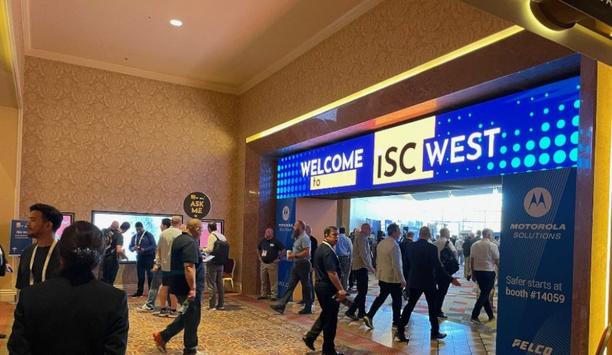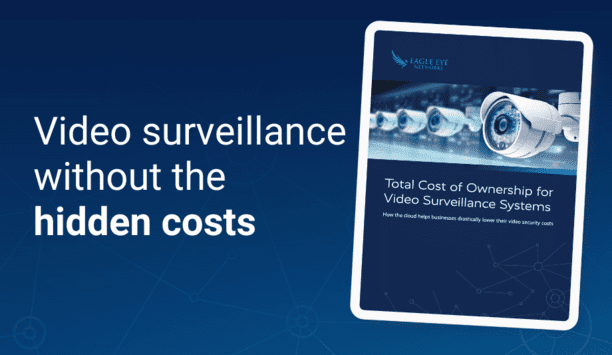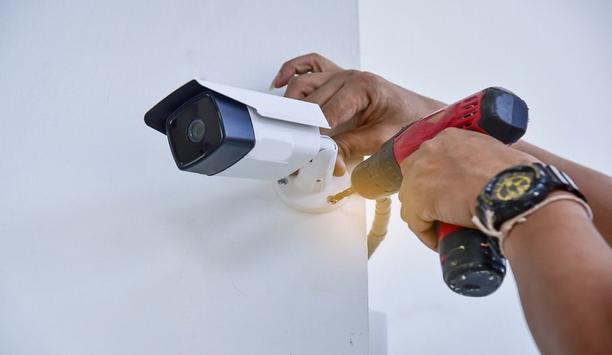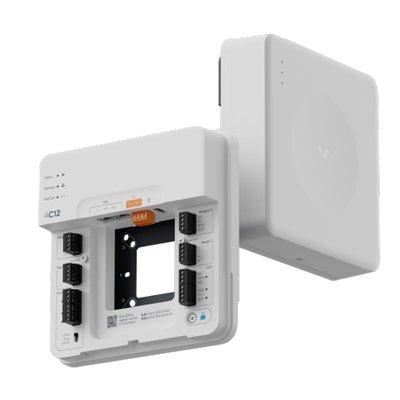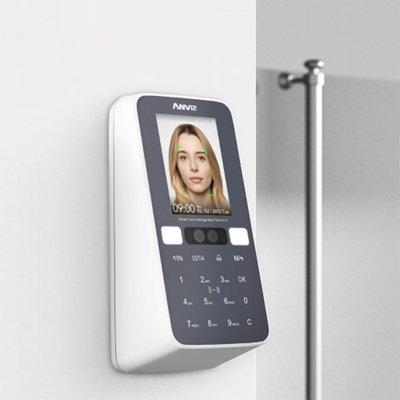What Missing Skills Among Security Integrators Can Cause Problems?
Editor Introduction
As physical security technologies become more complex, it is incumbent on the dealer/integrator to have the skills and expertise needed to ensure that a system operates smoothly. The value of integrators increasingly rests on the skill sets they bring to bear when installing a system. If the skills are missing, there is a problem. We asked this week’s Expert Panel Roundtable: What missing skills among security integrators can cause problems for customers?
Lack of network expertise is by far the biggest missing skill for many security integrators. Every modern security solution, by and large, is composed of critical applications that run on a network. This is true of everything from alarm signals to streaming surveillance video. An integrator that doesn't understand networks will struggle terribly, especially when it comes to interaction with the customer’s IT team (the nice folks who will determine whether and how the integrator’s application gets on their network). The ability to navigate firewalls, routing schemes, network capacity, and even PCI (Payment Card Industry) compliance rules is often the difference between a successful integration and an unhappy customer. When you add the cybersecurity component, this adds yet another skill set that is often in short supply.
As physical security systems evolve, it is crucial for integrators to evolve their skill sets as well. The expertise required to properly set up and configure devices on a unique network is one of the more difficult skills to master. Many integrators add cameras to existing networks without consideration of what else is on the network, including switching, routing, PoE budget requirements, and available bandwidth. When something doesn’t work, it is easy to point back to the new device when frequently it is an issue within the network infrastructure. Cybersecurity knowledge is another skill set in short supply for some integrators. Threats and weaknesses evolve along with the tools to combat them, so learning must be continuous. An organization’s IT staff represents an additional layer of stakeholders that must be consulted and satisfied with any network additions or modifications. Integrators must also know how to properly configure the advanced AI-based analytics present in many modern surveillance systems.
To be successful, security integrators need to have a proficient understanding of various security technologies, such as access control systems, video surveillance, and intrusion detection systems. Without this expertise, integrators may struggle with the proper installation, configuration, or integration of security systems, which can result in vulnerabilities and inefficiencies in the customer's security infrastructure. To bridge this gap, there has been an increase in security manufacturers providing training opportunities to enhance integrators' technical knowledge and ensure better customer outcomes. Additionally, security manufacturers are offering additional professional services in support of the security integrator and end user. In coordination with the security integrators, manufacturers can provide the appropriate level of service to ensure the designed solution meets the system's capabilities and satisfies the business use case. This collaboration allows integrators to leverage the manufacturer's expertise and resources, enhancing their ability to deliver comprehensive and effective security solutions to customers.
One skill that is rapidly growing in importance is cybersecurity awareness. While it is important that the entire value chain from vendor to integrator to end user is involved in the cybersecurity of the system, in the end, it is more about the people than the technology. Systems integrators must be versed in cybersecurity best practices when configuring a system and particularly if end-user training is involved in terms of device management and policies.
One missing skill is knowledge of how to set up a program that monitors the health of the camera system. While there are many tools to perform advanced functions with cameras such as identifying objects in real-time or reading license plates, the camera system needs to be functioning correctly. If a lens is blurry, the license plate reader will not be effective, and if its hard-drive malfunctions then there won’t be any evidence stored of the car that entered illegally. Knowledge of and utilization of tools that monitor all aspects of a camera system benefits the end user and the integrator.
Security integrators should strive to be very detail-oriented and equipped with as much knowledge regarding systems and solutions as possible. It is not the customer’s job to understand the ins and outs of every device, and how it could impact existing infrastructure. Integrators should not only be prepared to educate customers upon request, but they should also raise potential issues before they become a reality. This includes every stage of the device’s lifecycle, including decommissioning. A customer might not understand the importance of proper disposal, so an integrator needs to ensure that they are always protected. In essence, as an integrator, you’re the expert on the subject matter and a comprehensive understanding of today’s new and existing technologies is paramount to success.
Lack of knowledge and expertise in cloud technologies can present significant challenges for systems integrators and their customers. One potential problem is limited scalability and flexibility. Cloud-based solutions offer unparalleled scalability, allowing systems to easily accommodate changing storage and processing requirements. Integrators who lack cloud expertise may struggle to design and implement systems that can seamlessly scale according to customer needs. This can result in limitations in terms of storage capacity, computational power, and the ability to adapt to evolving business demands. Cloud technologies often provide cost-saving opportunities through pay-as-you-go models, resource optimization, and reduced infrastructure maintenance. Integrators who are unfamiliar with cloud solutions may miss out on these potential savings for their customers. They may fail to assess the most cost-effective cloud services or overlook opportunities for infrastructure consolidation, leading to higher costs and inefficient resource utilization. To overcome these challenges, systems integrators should invest in developing their expertise in cloud technologies.
Customers predominantly want solutions to their problems and are not that concerned about what the technology is that will address this for them. It is all too easy for some security integrators to become obsessed with the specific technology and to lose sight of the fact that these systems must address actual problems/needs to remain relevant. It is essential that all integrators have a broader understanding of their customer’s business issues and always aim to use technology to improve the security, health and safety, buildings management, and the general running of facilities to benefit end users. Successful integrators add tangible value and in turn thrive in the market, rather than just surviving. I would add that in my experience many security integrators fully understand this and do an amazing job. In fact, in many cases, these professionals that work on the front lines of security are driving innovation and finding new ways to support end users.
In the control room space, integrators are pivotal in design and setup, bringing together varied technological components for a seamless operation. AV-over-IP, a method for transmitting audio-visual data over a network via standard network protocols, is a crucial part of modern control room setups. The flexibility of AV-over-IP allows for long-distance signal distribution without degradation, facilitating remote monitoring and control. It also ensures efficient use of existing infrastructure by sending audio, video, and control signals over a single network cable. Integrators, in implementing AV-over-IP technology in control rooms, play roles across system design, network management, installation and configuration, training, and maintenance. A strong understanding of network management is required, covering aspects like bandwidth management, Quality of Service (QoS), and network security. Their role extends to ongoing system maintenance, troubleshooting, upgrades, and overall performance. Through AV-over-IP, integrators can create flexible, scalable, and efficient control room environments, but this requires the requisite technical knowledge and skills for proper implementation and management.
In the realm of modern security systems, a strong IT infrastructure and expertise in networking technologies are crucial. Integrators who lack a comprehensive understanding of IP networks, protocols, and network troubleshooting may encounter issues with compatibility or experience subpar system performance. It is imperative for integrators to possess a solid foundation in IT and networking concepts to seamlessly integrate security systems with existing infrastructures. Another area that presents difficulties is the integration of security systems with third-party systems like access control or video analytics. Integrators must have expertise in system integration protocols, application programming interfaces (APIs), and interoperability standards to ensure effective collaboration between different systems. Without this knowledge, integrators may struggle to deliver fully integrated solutions, resulting in reduced efficiency and functionality for customers. Fortunately, advancements are being made to simplify integration, as software and hardware vendors work to ensure that their platforms seamlessly integrate with other systems without requiring complex integration methods.
A strong understanding of regulatory compliance is crucial. For example, security integrators working in the financial services market must be well-versed in the specific regulations governing video surveillance. This includes knowledge of privacy laws, data protection regulations, and any industry-specific guidelines. Failure to comply with these regulations can result in legal and reputational consequences for the bank, as well as potential breaches of customer privacy. Security integrators should possess in-depth knowledge of video surveillance technologies, including camera types, resolutions, storage capabilities, and network infrastructure requirements. Without this expertise, integrators may struggle to design and implement a surveillance system that meets a customer’s specific security needs, compromising the effectiveness of monitoring and investigation efforts. Most importantly, effective integration and interoperability skills are necessary. Video surveillance systems often need to interface with other security systems, such as access control or alarm systems, to provide a comprehensive security infrastructure.
A gap in skills can often arise when an installer has not been formally trained in how to use the products they rely on, especially when working with a solution that’s new to them or when faced with a particularly challenging installation. An example is fitting an automated security gate to work with accessories such as safety edges, induction loops, and photocells, which can become time-consuming and technically demanding, but there are simple measures installers can take to make the whole process far easier and therefore less disruptive for customers. That level of knowledge can’t always be learned purely from an instruction manual. There’s often no substitute for face-to-face training, where either an individual or a team of security installers can ask questions and practice using a product in action.
With the ongoing digitalization and increasing interconnectedness of security systems, a deficiency in cybersecurity and IT knowledge could leave clients susceptible to various threats. For example, many security systems integrators might not have a deep understanding of containerized solutions. While containerization has been gaining popularity in the software development and IT fields, its adoption in the security industry may not be as widespread. Containerization requires specific technical knowledge related to Docker, Kubernetes, and other container platforms. It also requires understanding how to create, deploy, manage, and secure containers in various environments. If an integrator lacks these skills, it could lead to implementation issues, security vulnerabilities, or other problems. With this in mind, it is crucial for integrators to invest in training and skill development in this area and keep pace with the latest advancements in technology to serve their clients effectively.
Editor Summary
Increasingly, network expertise and knowledge of the IT infrastructure are critical skills for integrators, who also need a broad knowledge of a variety of equipment and systems. Integrators can also benefit from a wider understanding of a customer’s business and issues such as regulatory compliance. Cybersecurity knowledge is essential, as is knowledge of technologies such as the cloud, AV-over-IP, and containerized solutions. Keeping up to date in a range of skill sets is a perpetual challenge for integrators. It is also the source of their continuing value to their customers.
- Related links
- Card Access control cards/ tags/ fobs
- Event Network Video Recorders (NVRs)
- Biometric Access control software
- Audio Only Intercom Systems
- Networkable Access control readers
- IP54 Intercom Systems
- Real Time Network Video Recorders (NVRs)
- Standalone Access control readers
- Detection Software Video Surveillance software
- Network IP cameras
- Card Swipe Access control readers
- Smart Card Access control cards/ tags/ fobs
- Tag Access control cards/ tags/ fobs
- Standalone / Networkable Access control readers
- Infrared Access control readers
- IP Surveillance Software Video Surveillance software
- Real Time / Timelapse / Event Network Video Recorders (NVRs)
- Management Software Video Surveillance software
- Magnetic Stripe Access control readers
- Monitoring Software Video Surveillance software
- Surveillance Software Video Surveillance software
- RFID Access control readers
- Door Monitoring Option Access control software
- Version Upgrade Access control software
- Visitor Management tool Access control software
- Axis Communications Intercom Systems
- Axis Communications Digital video recorders (DVRs)
- Axis Communications Access control software
- Axis Communications Video Surveillance software
- TDSi Video Surveillance software
- TDSi Access control software
- Verint Digital video recorders (DVRs)
- Verint Video Surveillance software
- Axis Communications IP cameras
- Axis Communications Access control readers
- TDSi Access control readers
- TDSi IP cameras
- Verint IP cameras
- Axis Communications Network Video Recorders (NVRs)
- TDSi Network Video Recorders (NVRs)
- TDSi Access control cards/ tags/ fobs
- Verint Network Video Recorders (NVRs)
Expert commentary
Security beat
Security bytes
- Getting To Know Dan Grimm, VP And General Manager Of Computer Vision At RealNetworks
- Big Wins And The Importance Of Showing Up: Insights From SecurityInformed.com Editor Larry Anderson
- Setting Goals, Business Travels And Radioactivity: Success Secrets From Tiandy's John Van Den Elzen
- Getting To Know Jeff Burgess, President/CEO At BCDVideo
Total Cost Of Ownership For Video Surveillance
DownloadThe Truth Behind 9 Mobile Access Myths
Download5 Surprising Findings From OT Vulnerability Assessments
DownloadHikvision: Solar Powered Product Introduction + HCP
DownloadBank Security
DownloadASSA ABLOY Aperio® KL100: A New Wireless Access Solution For Lockers And Cabinets
Verkada AC12 One-Door Controller
Anviz W3 Smart Cloud-Based Face Recognition Time Attendance & Access Control Terminal
















